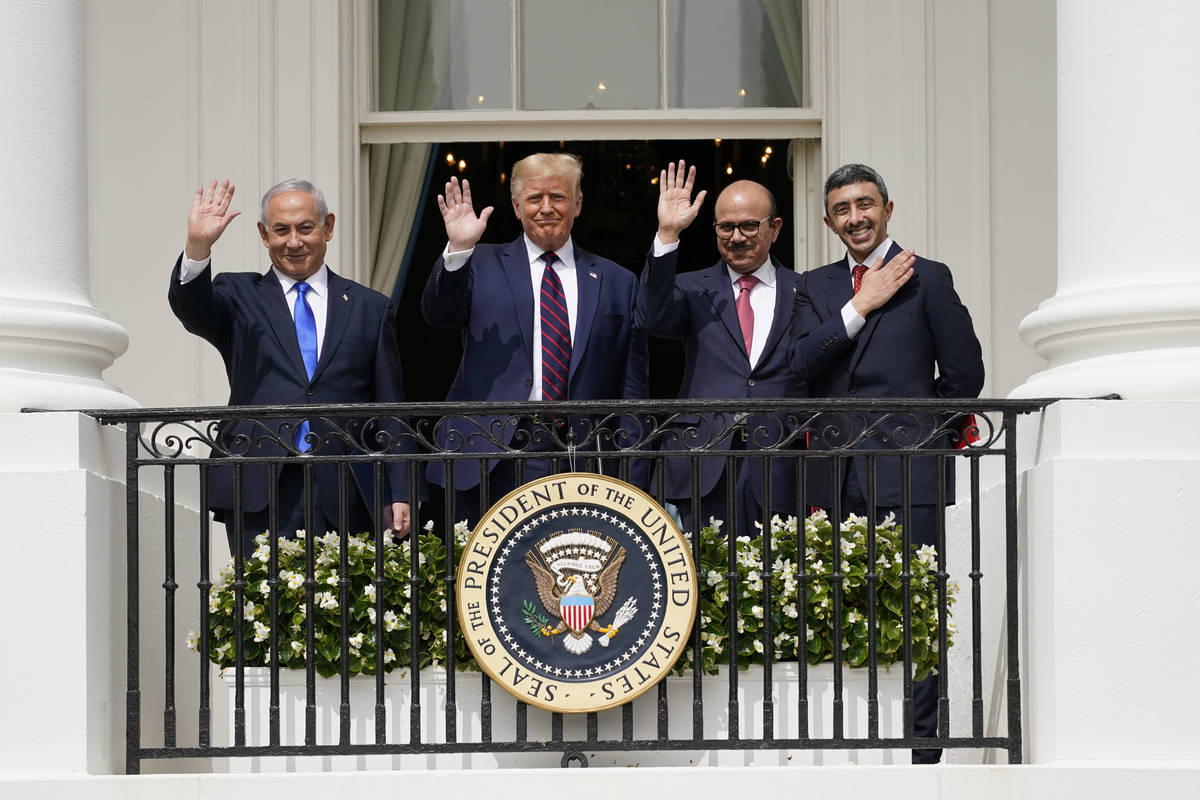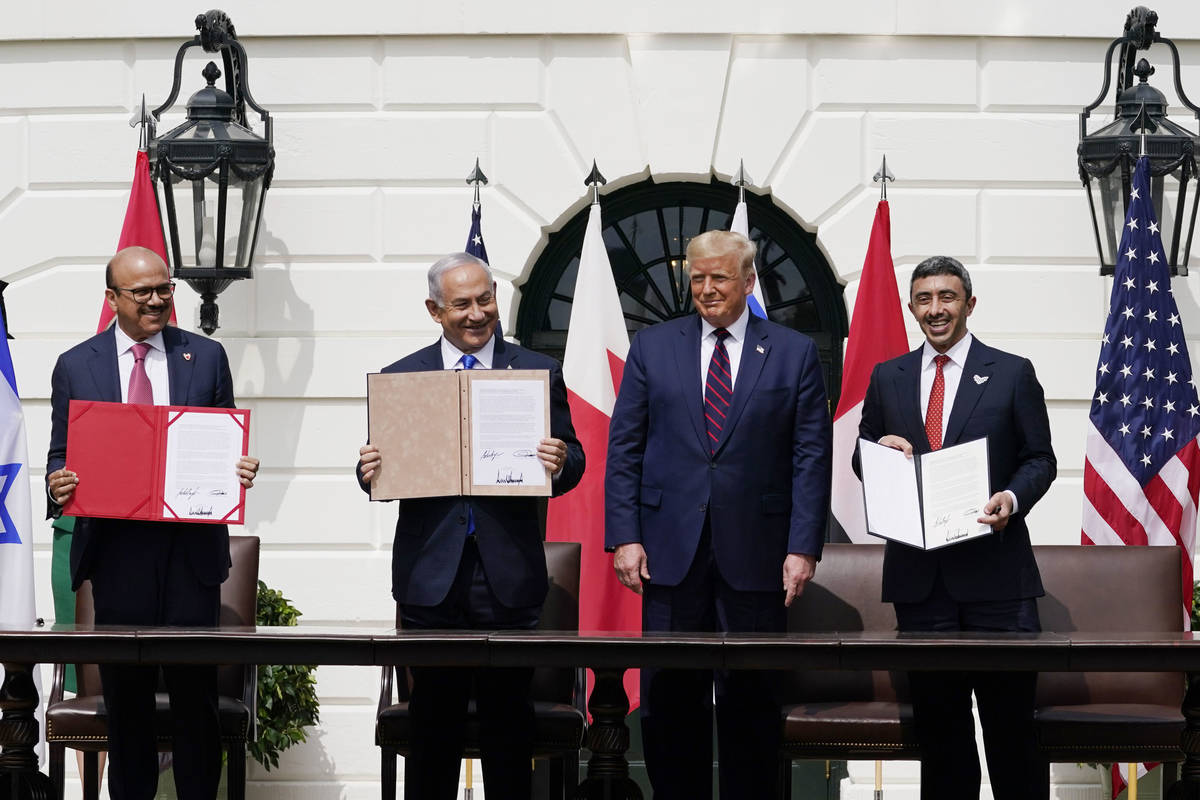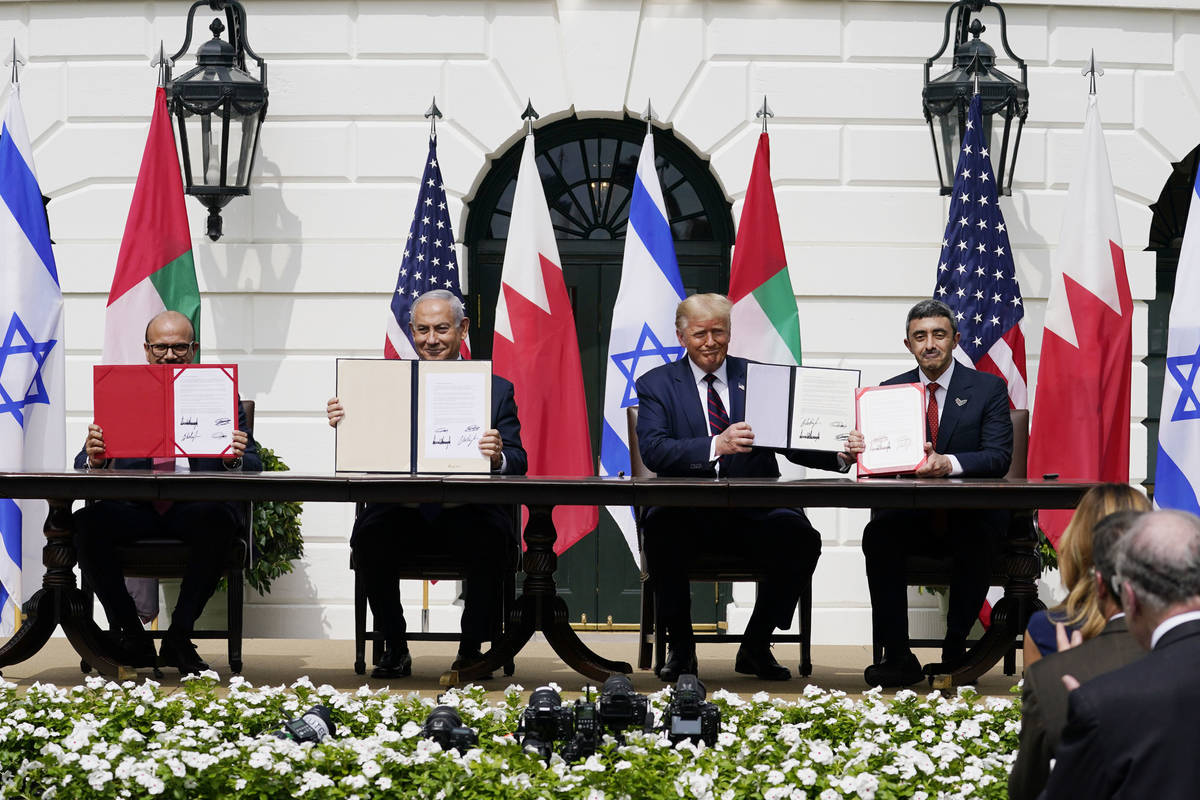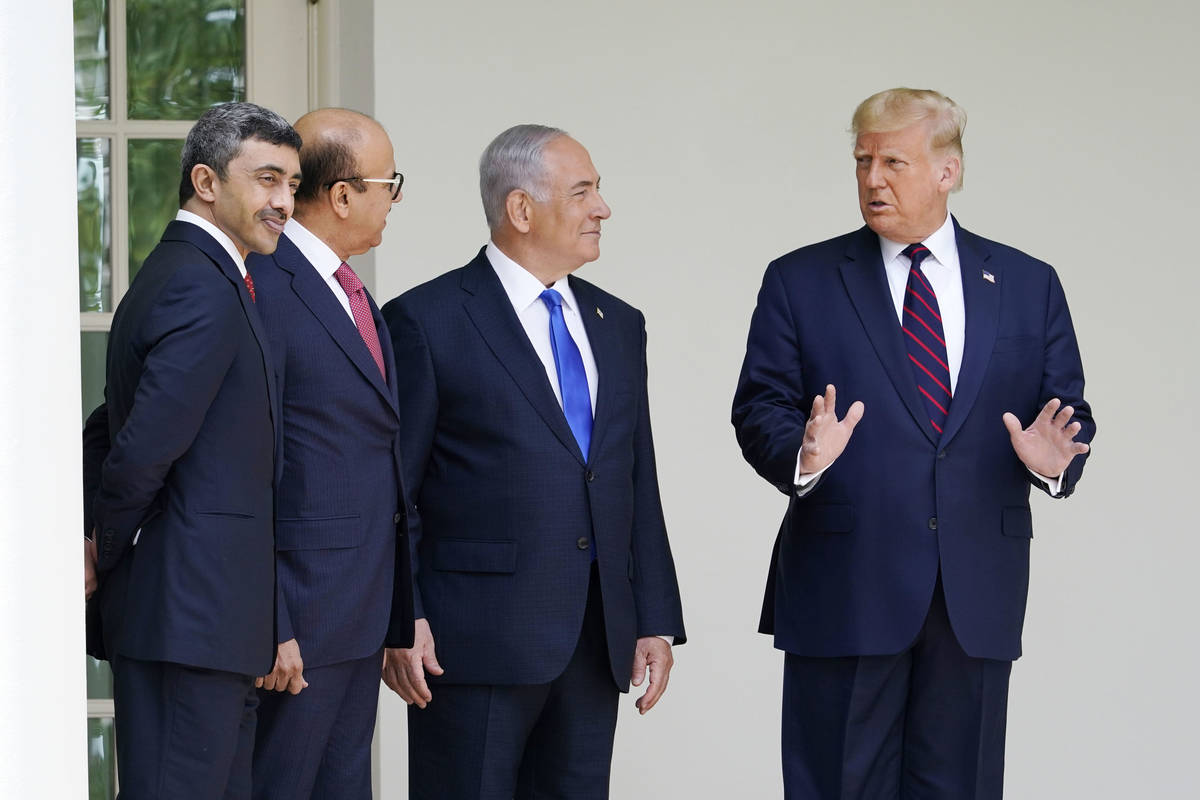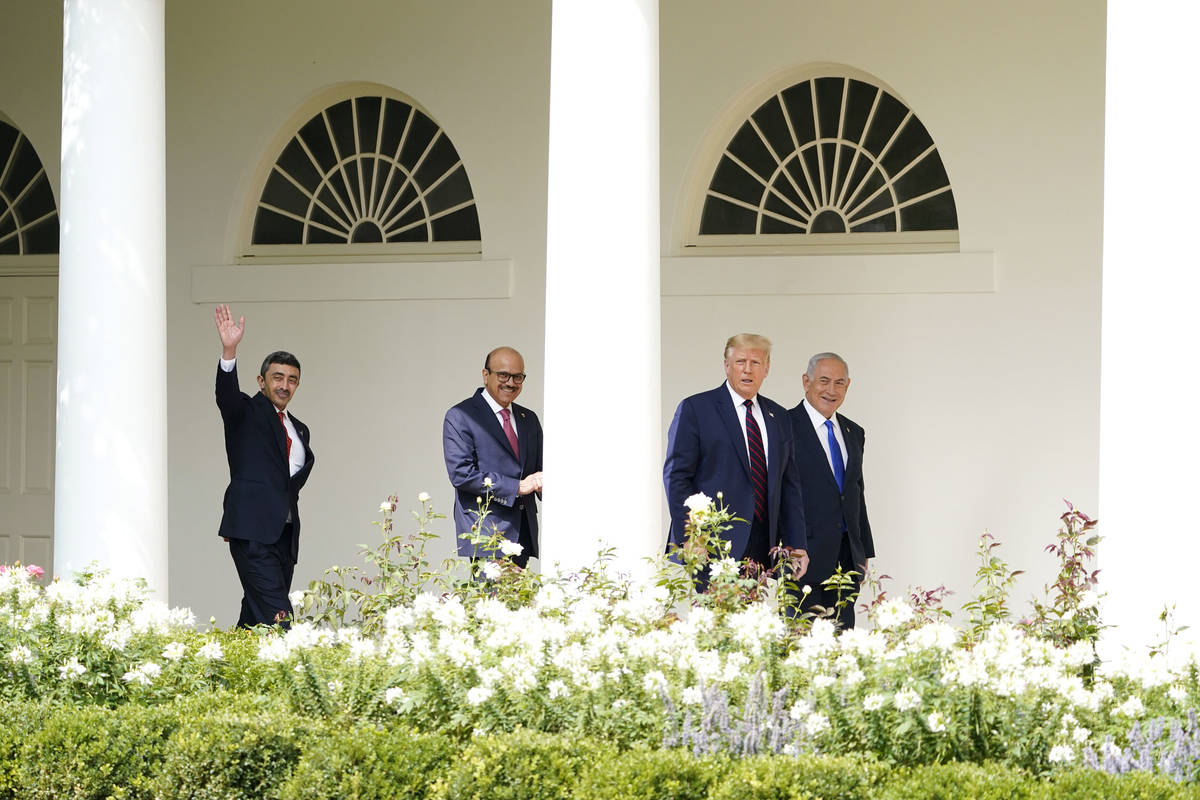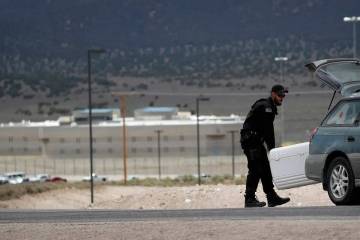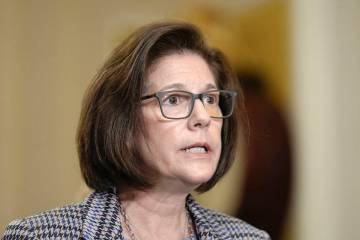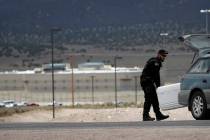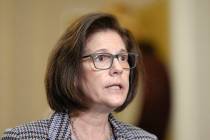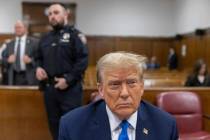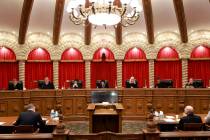UAE, Bahrain sign historic accord with Israel at White House
WASHINGTON — President Donald Trump presided over a historic signing ceremony Tuesday on the South Lawn as the United Arab Emirates and Bahrain became the third and fourth Arab nations to normalize relations with Israel.
Israeli Prime Minister Benjamin Netanyahu, UAE Foreign Minister Sheikh Abdullah bin Zayed Al Nahyan and Bahraini Foreign Minister Abdullatif bin Rashid Al Zayani, signed “Abraham Accords” declarations on the establishment of full diplomatic ties with Israel.
The signing made the UAE and Bahrain the first Arab nations to normalize relations with Israel since Egypt led the way in 1979 and Jordan followed in 1994.
Over the 72 years since Israel’s founding, just two Middle Eastern countries had established ties with Israel, Trump told reporters in the Oval Office.
“We did an additional two in one month,” he said.
“There’s going to be peace in the Middle East,” Trump told reporters ahead of the ceremony.
Jonathan Schanzer, of the Foundation of Defense of Democracies, said the agreements confer “100 percent vindication” of Trump’s decision to buck the foreign policy establishment by handing the Middle East portfolio to his son-in-law and senior adviser Jared Kushner. Although Kushner had no foreign policy experience, Trump believed that past foreign policy practices meant to woo Palestinian leaders had failed.
Israel isolated no more
The Palestinian Authority boycotted Kushner’s negotiations. When the White House released the Trump Israeli-Palestinian peace plan in January, Vermont U.S. senator and then-Democratic presidential hopeful Bernie Sanders warned that the deal “will only perpetuate the conflict and undermine the security interests of Americans, Israelis and Palestinians.”
At the time, Trump warned that this could be Palestinians’ last opportunity to cut a good deal. On Tuesday, Trump crowed that Israel “is not isolated any more.” And Schanzer said the Palestinians “are on the outside looking in.”
But Palestinian Authority negotiator Saeb Erekat said, “I really believe that this step is a killer to the two-state solution.”
Trump announced the deal between the UAE and Israel on Aug. 13. That announcement was followed by the first official El Al flight from Tel Aviv, Israel, to Abu Dhabi, UAE, over Saudi airspace on Aug. 31. Photos of Kushner, national security adviser Robert C. O’Brien and Israeli National Security Council head Meir Ben-Shabbat on board signaled that Israel’s isolation in the region was diminishing.
On Sept. 11, Bahrain announced that it would join the Abraham Accords, named after the father of Christianity, Islam and Judaism.
Longtime goal
During an exclusive interview Sunday, Trump told the Review-Journal that the approach to the Mideast issue was on his mind when he made his first international travel as president during a four-country sweep that began in Saudi Arabia before stops in Israel, Italy and Belgium.
“It was in my head. I had the feeling that for 40 years that they’ve been able to do nothing,” Trump said.
He added that he thinks the Saudis will sign onto the Abraham Accords “at the right time.”
Under the pact, member nations will exchange embassies, facilitate tourism and trade and expand Muslim access to the Al-Aqsa Mosque in Jerusalem, the third-holiest site in Islam.
During a conference call, experts affiliated with the Jewish Democratic Council of America discussed their concerns, such as the pact’s “rushed” nature and signing within 50 days of the Nov. 3 election. Board member Ron Klein said there are unanswered questions, including whether the United States will provide F-35 fighter aircraft to the UAE.
During a media call with reporters Monday, a senior administration official said, “I think Jared has been pretty forthright that it’s something that’s under consideration, and obviously Israel’s security will not be put in any way at risk.”
Council Executive Director Halie Soifer said “Israelis and Palestinians are further today from achieving a two-state solution, and Iran is closer to acquiring a nuclear weapon than it was four years ago.”
Soifer also suggested that Trump was using the pact to “score political points with Jewish voters,” but unsuccessfully.
Crowded lawn
Some 800 individuals watched the ceremony from the South Lawn, according to the White House, which distributed a list of guests that included House Democrats but no Democratic senators.
According to her office, Sen. Jacky Rosen, the third Jewish woman elected to the Senate, was not among those invited. Rosen did release a statement in support of the deal, in which she said, “I applaud those who helped to secure this agreement, which demonstrates that American diplomatic leadership drives peace and stability. I will continue working in Congress to support a strong U.S.-Israel alliance, and encourage other Arab nations to follow in Bahrain and the United Arab Emirates’ footsteps.”
Palestinian militant group Hamas fired rockets into southern Israel as the accords were signed.
The Republican Jewish Coalition ran an ad in The New York Times on Thursday that lauded Trump as a “peacemaker” who “will sign the most significant Middle East peace treaty in 26 years – an agreement between Israel, the United Arab Emirates, and Bahrain.
“It is a historic achievement, one worthy of the Nobel Peace Prize.”
The Review-Journal is owned by the family of Las Vegas Sands Corp. Chairman and CEO Sheldon Adelson. Adelson is on the board of directors of the Republican Jewish Coalition.
Contact Debra J. Saunders at dsaunders@reviewjournal.com or 202-662-7391. Follow @DebraJSaunders on Twitter.



